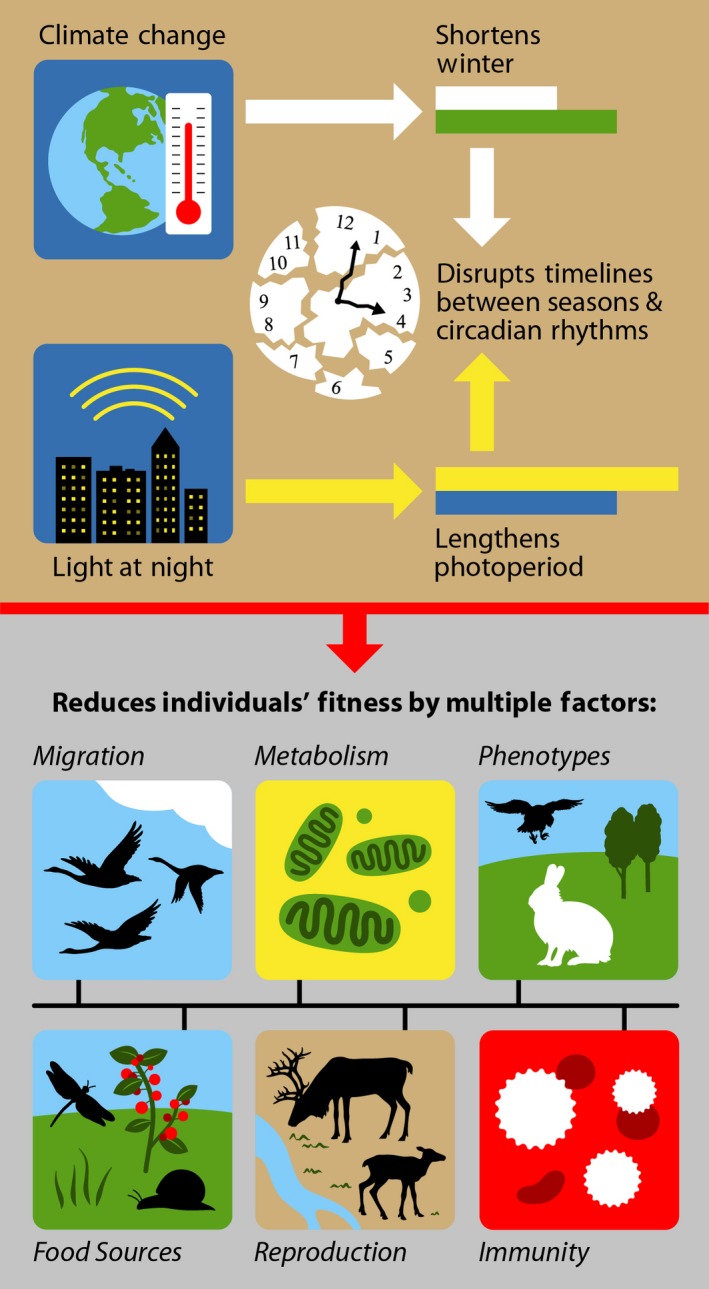Figure 1.

Climate change has provoked a mismatch between seasons and animals' seasonal rhythms; specifically, climate change has often phase‐shifted the growing season (e.g., shortened winter) without concurrent changes to photoperiod. Coupled with the effects of light pollution, which prevents individuals of photoperiod‐responsive species from determining day lengths, climate change presents extreme evolutionary pressure that can result in deleterious consequences. Specifically, climate change reduces individuals' fitness by altering predator–prey interactions, mistiming reproduction and migration with optimal nutrient availability, and in combination with light at night alters metabolic and immune function
